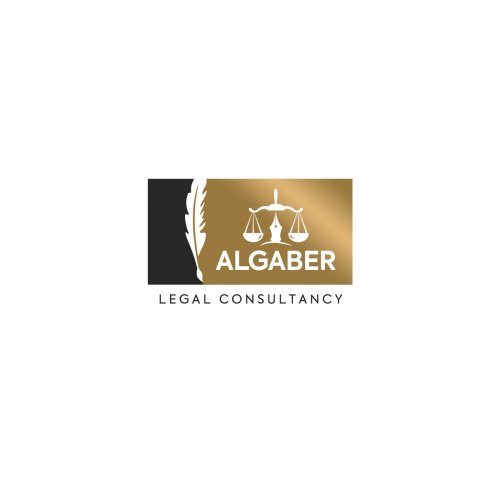Best Work Permit Lawyers in United Arab Emirates
Share your needs with us, get contacted by law firms.
Free. Takes 2 min.
Or refine your search by selecting a city:
List of the best lawyers in United Arab Emirates
United Arab Emirates Work Permit Legal Questions answered by Lawyers
Browse our 2 legal questions about Work Permit in United Arab Emirates and read the lawyer answers, or ask your own questions for free.
- Question about deported from Bahrain can apply in Dubai
- Hi I'm Muhammad Usman from Lahore Pakistan I was In Bahrain from 2016 to 2024 December I want to ask that I stay in Bahrain in Bahrain jail now I want to apply for a UAE worker permit so I can apply for UAE work permit in Pakistan or there's... Read more →
-
Lawyer answer by HHS Lawyers And Legal Consultants
Being deported from Bahrain does not automatically prevent you from getting a UAE work permit, but approval depends on the reason for deportation and your security and immigration record. When you may still obtain a UAE work visa - Overstay...
Read full answer - Visa Rejection due to security reason
- I am currently in Abu Dhabi UAE on a visit visa. My company applied for a work permit for me but it was rejected by immigration citing "security reasons". I don't know how to resolve this. I went to Abu Dhabi immigration office but they didn't provide any further information... Read more →
-
Lawyer answer by HHS Lawyers And Legal Consultants
A work permit rejection for "security reasons" in the UAE usually means the application was blocked during background screening by immigration or security authorities. Unfortunately, the exact reason is not disclosed to applicants or employers. Common reasons for security rejections...
Read full answer
About Work Permit Law in United Arab Emirates
The United Arab Emirates (UAE) is a popular destination for expatriates seeking employment opportunities. The UAE's work permit system is governed by federal laws designed to regulate employment of foreign nationals. A work permit, alongside a residence visa, is necessary for expatriates to legally work in the UAE. These permits are issued by the Ministry of Human Resources and Emiratisation (MOHRE) and are essential for ensuring that work contracts abide by the local regulations. Understanding the process of securing a work permit is crucial for both employers and employees.
Why You May Need a Lawyer
While navigating the process of obtaining a work permit in the UAE might seem straightforward, there are several scenarios where legal assistance may be necessary:
- Complex Visa Requirements: When facing complex immigration procedures or special case scenarios, such as setting up a new branch or company requiring multiple employee permits.
- Negotiating Employment Contracts: Legal experts can help ensure that employment contracts comply with UAE labor laws, protecting the rights of the employee.
- Work Permit Denials: If an application is denied, an immigration lawyer can help understand the reasons and assist in appealing the decision or reapplying.
- Compliance Issues: Businesses need to adhere to the local labor regulations, and legal advice may be required to navigate changes in the law or compliance reviews.
- Renewal and Termination: Lawyers can assist in the processes of work permit renewals or termination while safeguarding employee rights and entitlements.
Local Laws Overview
The work permit process in the UAE is governed by several key regulations:
- Labor Law: The UAE Labor Law, commonly Federal Law No. 8 of 1980, covers a wide scope including employment contracts, working hours, safety standards, and employee benefits.
- MOHRE Approvals: Work permits are issued after MOHRE approval, which includes ensuring that the potential employer cannot find a suitable local candidate for the job.
- Residence Visa: Alongside a work permit, an employment visa (residence visa) is required, allowing expatriates to legally reside in the country.
- Employment Contract Requirements: Contracts must meet specific criteria stipulated by MOHRE, covering terms of employment, compensation, and rights and duties of both parties.
Frequently Asked Questions
What is the difference between a work permit and a residence visa?
A work permit allows a foreign national to work legally in the UAE, while a residence visa permits the individual to live in the country. Both are required for foreign workers.
How long does it take to obtain a work permit in the UAE?
The process can take from several weeks to a few months, depending on the employer's industry and the employee's nationality.
Can I switch employers while holding a UAE work permit?
Yes, but there are regulations governing the process, and you must ensure that your new employer is able to secure a new work permit for you.
What happens if my work permit application is rejected?
If your application is rejected, it is important to understand the reasons for denial, which may include incomplete documentation or eligibility issues. Legal advice can help with re-application or appeal.
Do I need to renew my work permit, and how often?
Yes, work permits typically need renewal every one to three years, depending on the terms. The renewal process involves verification of continued employment and adherence to the law.
Can I bring family members with me to the UAE on my work permit?
While a work permit alone does not allow family sponsorship, an expatriate with a valid residence visa and meeting the income threshold can sponsor immediate family members.
What are my rights as a worker in the UAE?
Workers' rights in the UAE include specified working hours, annual leave, end-of-service gratuity, health care, and protection against wrongful termination, all underpinned by UAE labor law.
Can my employer cancel my work permit without my consent?
An employer can initiate cancellation of a work permit if the employment contract is terminated, but the employee should be notified, and due process must be followed.
Is there a restriction on changing job sectors with a current work permit?
Switching sectors can have additional requirements, especially if regulatory qualifications differ. Legal guidance is advisable to navigate sector-specific legal conditions.
What actions should employers take to comply with UAE work permit regulations?
Employers must ensure accurate and complete work permit applications, adhere to labor laws, conduct necessary employee training, and maintain a lawful work environment.
Additional Resources
If you need further assistance or information regarding work permits, consider reaching out to these resources:
- Ministry of Human Resources and Emiratisation (MOHRE): The government body responsible for managing work permits and labor issues.
- Emirates Identity Authority: Guidance on obtaining Emirates ID, which is pivotal for all resident visa holders.
- Legal Firms: Numerous law firms specialize in employment and immigration law in the UAE, offering professional legal advice and assistance.
Next Steps
If you require legal assistance related to work permits in the UAE, consider the following steps:
- Identify Your Needs: Determine the specific legal issues you are facing, whether it's related to work permit applications, renewals, or disputes.
- Consult a Lawyer: Engage with a lawyer specializing in UAE labor and immigration law to get tailored advice for your situation.
- Prepare Documentation: Gather all necessary paperwork related to your work permit status, employment contract, and any communications with employers or authorities.
- Plan Your Strategy: Work with your legal counsel to understand your options, whether in application, appeal, or litigation.
Securing the right legal support can ease the complexities of work permits and help ensure compliance with UAE laws.
Lawzana helps you find the best lawyers and law firms in United Arab Emirates through a curated and pre-screened list of qualified legal professionals. Our platform offers rankings and detailed profiles of attorneys and law firms, allowing you to compare based on practice areas, including Work Permit, experience, and client feedback.
Each profile includes a description of the firm's areas of practice, client reviews, team members and partners, year of establishment, spoken languages, office locations, contact information, social media presence, and any published articles or resources. Most firms on our platform speak English and are experienced in both local and international legal matters.
Get a quote from top-rated law firms in United Arab Emirates — quickly, securely, and without unnecessary hassle.
Disclaimer:
The information provided on this page is for general informational purposes only and does not constitute legal advice. While we strive to ensure the accuracy and relevance of the content, legal information may change over time, and interpretations of the law can vary. You should always consult with a qualified legal professional for advice specific to your situation.
We disclaim all liability for actions taken or not taken based on the content of this page. If you believe any information is incorrect or outdated, please contact us, and we will review and update it where appropriate.
Browse work permit law firms by city in United Arab Emirates
Refine your search by selecting a city.

















